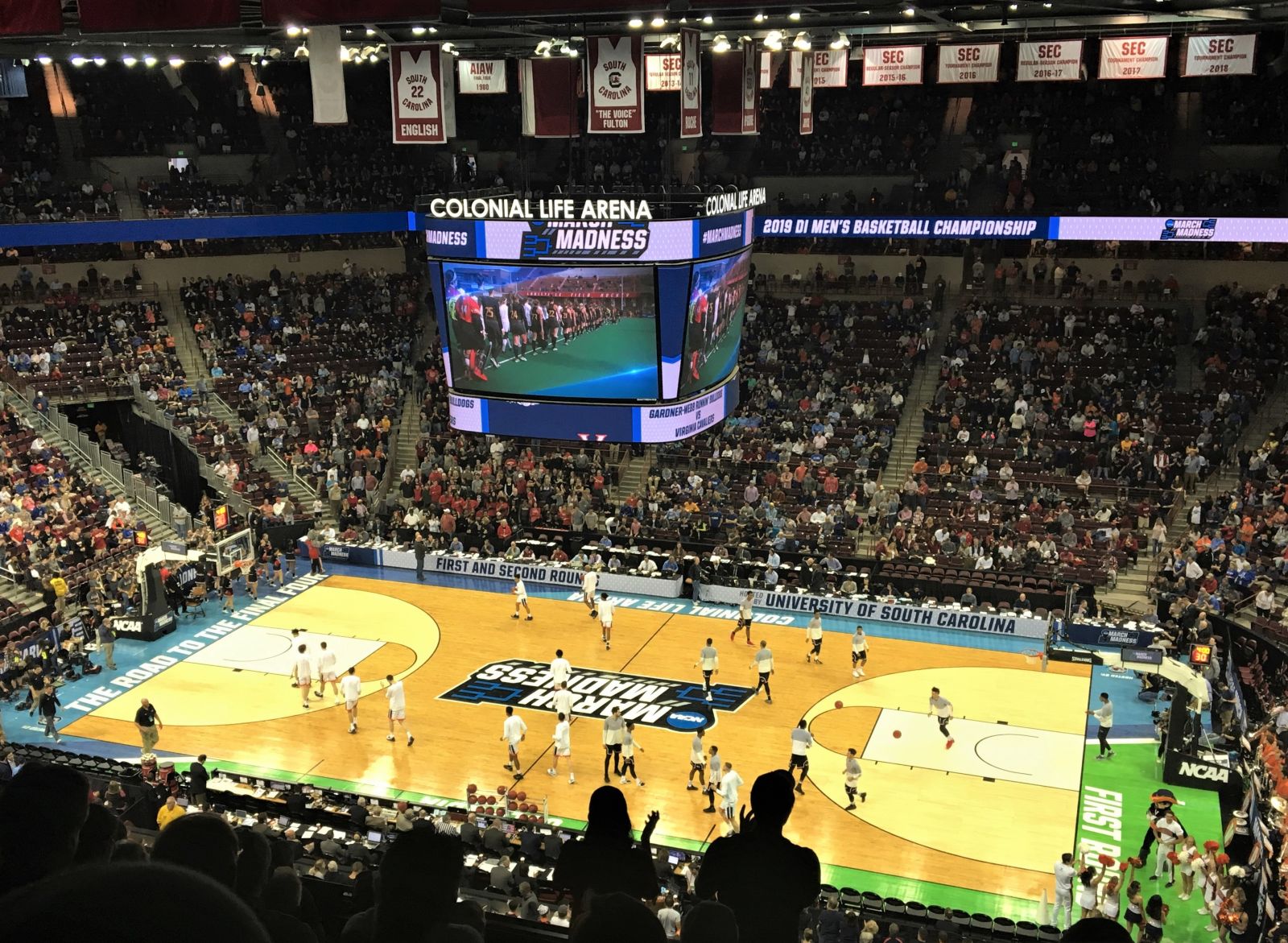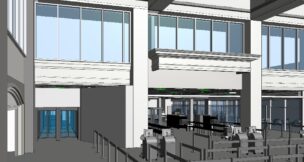Study: NCAA regional generated $11.3 million in economic impact
Melinda Waldrop //November 6, 2019//
Study: NCAA regional generated $11.3 million in economic impact
Melinda Waldrop //November 6, 2019//
The NCAA men’s basketball regional held in Columbia in March brought a direct economic impact of $11.3 million to the capital city, a study by University of South Carolina sport and entertainment management professor Tom Regan found.
The first and second rounds of the tournament, featuring Duke superstar Zion Williamson and eventual national champion Virginia, drew 47,977 fans from 33 states, Washington, D.C., and Canada, according to the study. That total ranked highest among the country’s eight first- and second-round NCAA sites.
The study measured direct spending by out-of-town visitors attending NCAA games at Colonial Life Arena, home to the University of South Carolina men’s and women’s basketball teams, and related events. Initial estimates projected 25,000 fans and an economic impact of up to $9 million.
 “Columbia and the region got tremendous exposure – exposure that would be very hard to pay for if we had to fork out those dollars,” Bill Ellen, president and CEO of Experience Columbia SC, said during a news conference Wednesday at the Columbia Metropolitan Convention Center.
“Columbia and the region got tremendous exposure – exposure that would be very hard to pay for if we had to fork out those dollars,” Bill Ellen, president and CEO of Experience Columbia SC, said during a news conference Wednesday at the Columbia Metropolitan Convention Center.
After his team’s two regional wins, including a one-point victory against Central Florida, Duke coach Mike Krzyzewski praised Columbia, saying, “What a beautiful city, everything about it.”
Regan, who has completed approximately 100 economic studies ranging from the PGA Championship to NASCAR races in Darlington, distributed surveys during first-round games on March 22 and second-round games on March 24. After running the information gathered through statistical software, he extrapolated data for the Columbia metropolitan statistical area.
Regan, who was out of the country on Wednesday, anticipated a large economic impact in March.
“The hotels were full, and the spending was a lot,” he said after the regional.
The study also found that indirect business taxes (sales, use and excise) totaled $1.38 million.
“We were entrusted with one of the most revered sporting events in the country, and we passed with flying colors,” said Charles Bloom, executive associate athletics director and chief of staff for the University of South Carolina Athletics Department.
Columbia is currently putting together its bid for the 2023 regional, due to the NCAA in February, said Kelly Barbrey, Experience Columbia SC vice president of marketing and communications.
To aid the success of that bid, Ellen said downtown Columbia will need more hotel rooms that meet NCAA requirements including full food and beverage service and meeting space.
“We did have some challenges on some of the requirements from the NCAA as far as the number of full-service hotel rooms available,” Ellen said. “We are limited in full-service hotels. Going forward, we’ll have to address those challenges. … There are new developers coming into town every month exploring the possibilities. We’ve got four years before they (the NCAA) could potentially be back. I think there’s some things in the pipeline.”
As to whether the rooms can be filled when basketball fans aren’t flocking to town, Ellen said, “That leads into another issue, which is the expansion of the convention center. If we expand the convention center, which is desperately needed because we’re turning down millions of dollars in lost business, those hotels will be needed, and those extra rooms will go to use.”
The March regional was the first such event held in Columbia in 49 years. Like all S.C. cities, Columbia was ineligible for an NCAA event for nearly 15.
Beginning in 2001, the NCAA refused to allow predetermined championship events to be held in the state while the Confederate flag flew above the Statehouse. With the passage of legislation in July 2015 that led to the flag’s removal, the boycott ended, and two years later, Columbia was awarded a 2019 men’s basketball tournament regional.
Greenville played host to regional competition in 2017, the same year Colonial Life played host to an NCAA women’s regional.
Chris Stone, president of VisitGreenvilleSC, told The Greenville News that the 2017 men’s regional generated an estimated $3.6 million impact for that Upstate city, with more than 14,000 visitors with tickets coming to town.
Regan said Columbia’s turn in the spotlight could have longer-term ramifications, with visitors returning for business or pleasure trips. Columbia Mayor Pro Tem Tameika Isaac Devine echoed those hopes on Wednesday.
Devine said data compiled during the NCAA bid process will help the city attract conferences and other events, and she said Columbia now has a better idea of its capacity to play host to such big-time happenings.
“We look at it as an investment for our strategic process going forward,” Devine said.
















